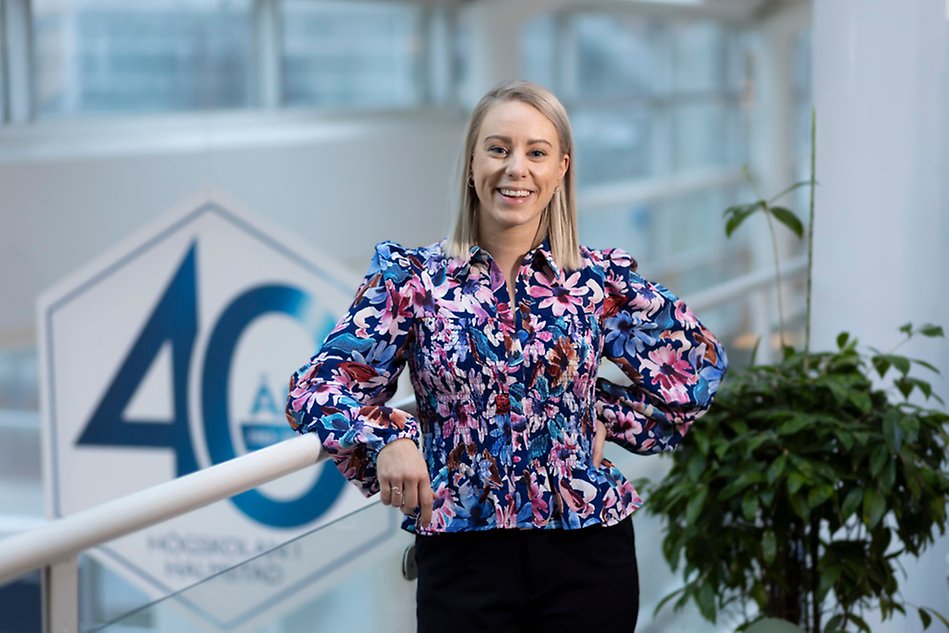Charlotte Sylwander, Health and Lifestyle
Charlotte Sylwander is an industrial PhD student in Health and Lifestyle and an employee at a research and development centre. This means that she is in a research environment where there always are research-related conversations and discussions. She finds it rewarding as it broadens her frame of reference and understanding of research in general.

Charlotte Sylwander.
Hi, Charlotte. What is your research about?
“In my thesis, I examine a group of individuals with knee pain over time, a project that is based at FoU Spenshult, an independent research centre with a focus on epidemiological, clinical and patient-related research. Knee pain in particular has been shown to be an early risk factor for both the development of knee osteoarthritis and long-term pain, and that is where my focus lies. I am researching early risk factors for developing long-term pain as well as health-promoting factors. The aim is to better understand how we can tackle these early risk factors so that fewer individuals develop a severe pain problem. I do this by also examining the level of ‘health literacy’ – the ability of individuals to find, understand, value and make decisions based on health information, but also by gaining an increased understanding of what they are already doing for their health.”
What is it like to be a PhD student?
“It was very strange at first before everything fell into place – partly because I started just when the pandemic began, partly because at the beginning I thought that I had to perform and ‘prove’ that I was good enough to be a PhD student. After all, it is a tough environment in that everything you do is scrutinised multiple times, and it is easy to focus on the negative aspects. It is therefore important to have good supervisors who can guide you through both knowledge-based challenges and emotional ones as well. If you have that, it is an incredibly exciting journey.
Being a PhD student is not about knowing everything, but about being open to learning more about this exciting world of research, developing one’s analytical and reflective skills and a humility in the face of the fact that it is impossible to know everything. It is a learning journey that goes up and down and never ends.”
What does a typical day look like?
“Spontaneously, I would say that there is no such thing as a typical day. I decide myself when and how I want to work, which is an incredible luxury and something I appreciate. It contributes to my creative process, which is an important part of research. The most typical thing is that I always start by checking my emails and create a plan according to what the day is going to look like. If I feel creative and energetic to produce something new, for example writing a discussion in an article, I do it. If not, I choose to work with something a bit more concrete. It is often a mix of the two, but it depends on where you are in the research process or if you are taking courses.”
What is it like to do a PhD when you are also connected to a company?
“I am employed at a research and development centre, FoU Spenshult. This means that I am always in a research environment, which is positive from several points of view. It is like a second research school because there are always research-related conversations and discussions going on there, even on topics that are not directly relevant to my research. This broadens my frame of reference and understanding of research in general, which is very rewarding.”
Do you have any advice for new PhD students?
“No one expects you to know everything from the start, so try not to put that pressure on yourself either. Practice early on accepting that things will change and take longer than you have planned – multiple rounds of an analysis, for example, or a draft being changed, is part of the process.
My mantra is ‘Trust the process’. This means that even the ‘negative’ moments, the feeling of ‘I don’t understand anything’ and the setbacks, are actually an important and significant part of moving forward. It is important to celebrate your successes, big and small! And finally, listen to the PhD student podcast, Doktorandpodden!”
Text and photo: Emma Swahn

